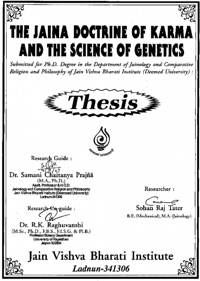Upaniṣads give a detailed description of the various singularities of this world in place of karma. This kind of contemplation is generally missing in the earlier Vedic literature.
- Theory of Time
Time is discussed in Śweāśwatara Upaniṣad.[11] It is stated that the only reason behind all of social factors, individual differences, pleasure, pain and activities of man is time.
- Theory of Nature
Theory of nature is discussed in Upaniṣads.[12] Whatever happens, or is going to happen, is based on the nature of thing itself. The nature cannot be defied.
- The theory of Free Will
There is no particular reason behind the events taking place in the world, these occurrence is a mere chance. This theory puts emphasis on chance and propounds causeless reason theory. The Nyāya theorists mentioned that existence comes into being like the sharpness of a weapon without any casual or non-casual reasons.[13]
- Fatalism
Occurrence of events is predetermined and they occur in the same order and way. No one can alter them. That which is to be, would be as it is. This theory too is given for the first time in Swetāśwatara Upaniṣad, but the theory is not given due consideration either here in or in other Upaniṣads.
- The Elements Theory
According to this theory the four elements, namely, earth, fire, air and water, are the basic factors behind this universe; all the material, living and non-living things are the outcome of the various combinations of the four elements.
- Naturalism
According to naturalism the nature, endowed with three attributes, is the only reason behind the growth of the universe and pleasure, pain and bondage of human.
- The Theory of Gods
This theory propounds that God is the creator and sustainer of this universe. Whatever takes place in the universe is the play of his will.
Jaina and Buddhistic canonical literatures are highly critical of all these views. This critical thought forms the basis of a well-established theory of karma. According to Dr. Nathmal Tāntiyā, it seems that the theory of karma has come up in the protest to various nature-oriented theories and beliefs.[14]
 Prof. Dr. Sohan Raj Tater
Prof. Dr. Sohan Raj Tater
 Doctoral Thesis, JVBU
Doctoral Thesis, JVBU